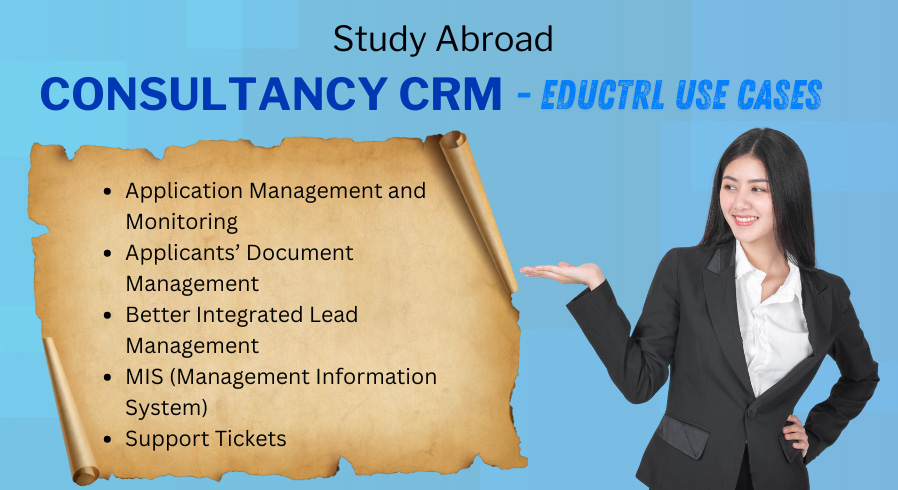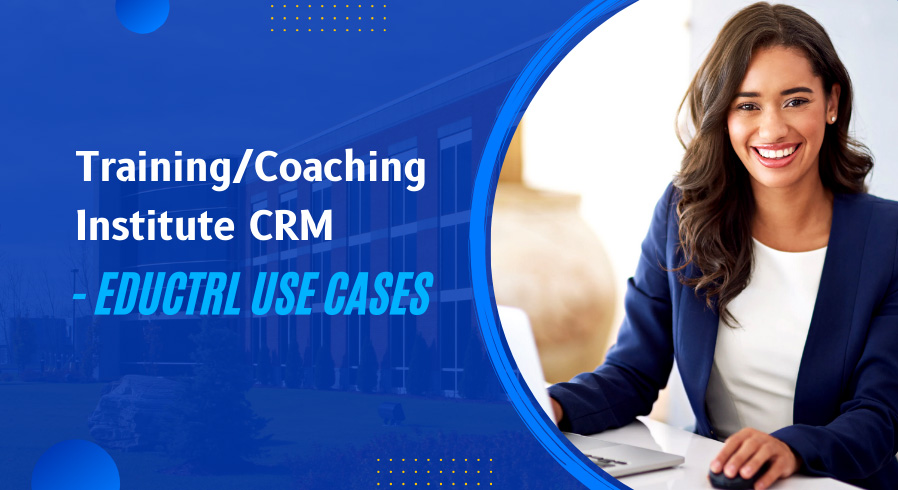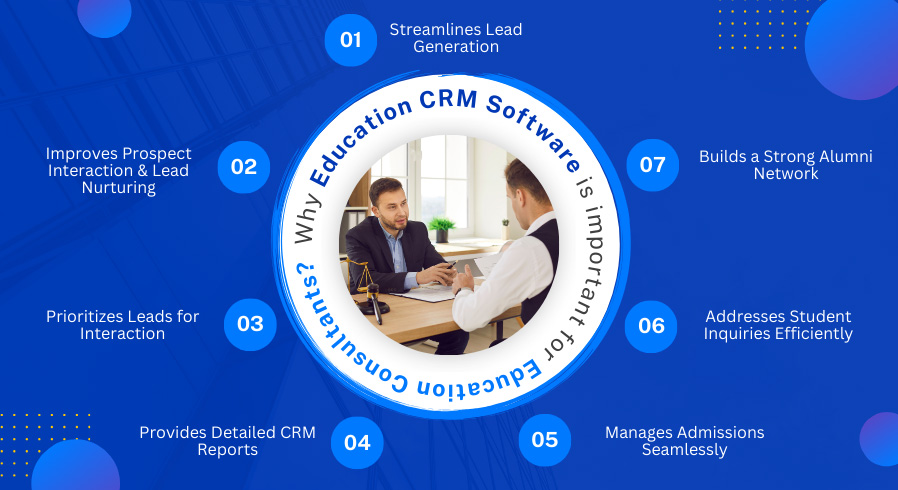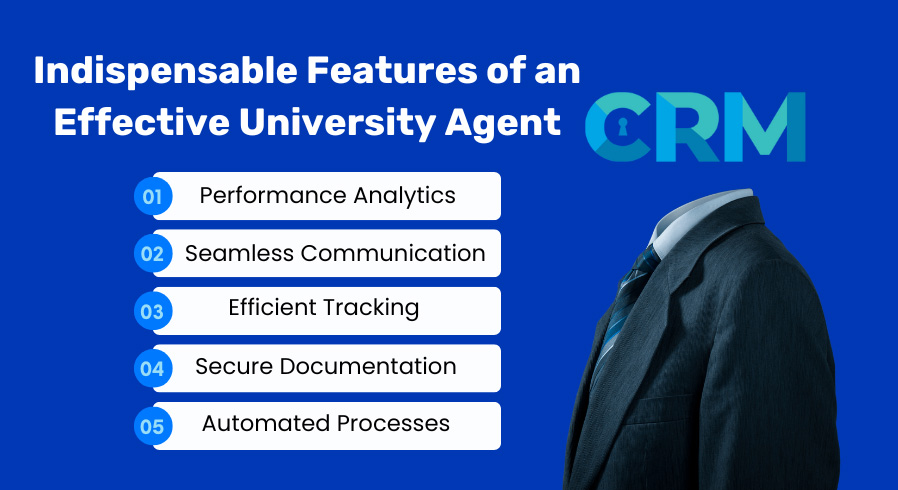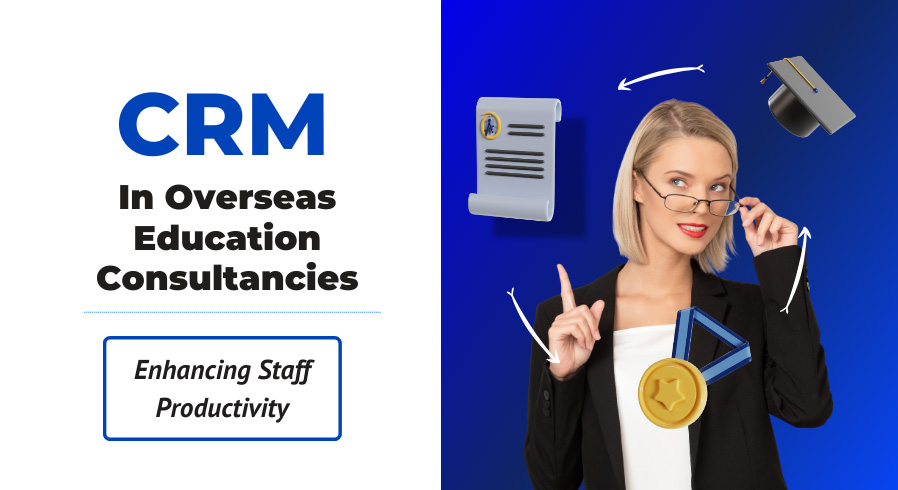Table of Contents
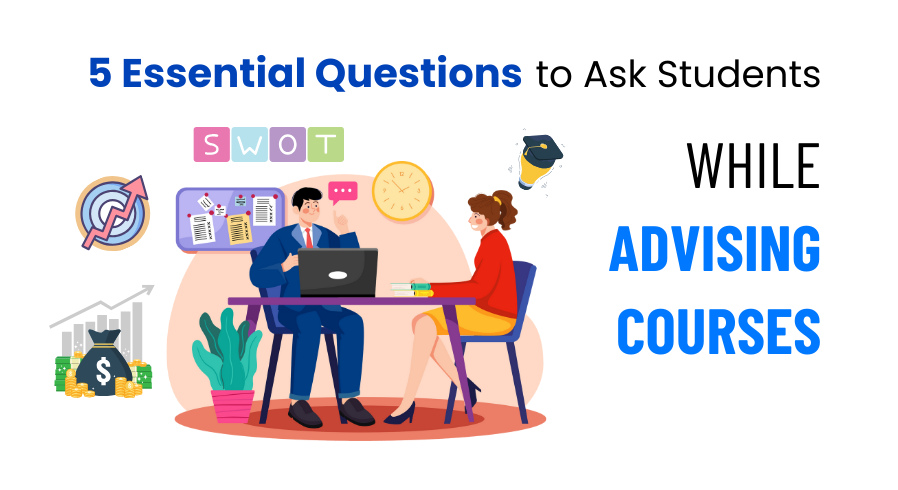
Helping students choose courses represents a vital role for education consultants. Picking the appropriate courses has a major effect on a student’s academic excellence and professional path. Many choices create confusion for students in choosing the courses that match their aspirations and abilities. To assist students in making educated decisions effectively an advisor must focus on necessary inquiries.
This blog will delve into five vital questions that advisers must pose to students to help them choose the best courses for their educational and professional goals.
1. What Are Your Long-Term Career Goals?

Recognizing a student's ultimate career aims is important to recommend the proper courses. A lot of students struggle to clarify their future job direction; however, guiding them to set realistic goals can reduce the options they should consider. When students determine their path in technology healthcare or any other sector their chosen courses can set a strong foundation.
Here’s why this question matters:
Tailored Curriculum: Knowing the student’s career intentions permits you to advise on programs that adhere to market expectations. If a student is passionate about software development courses in programming languages like Python or Java could prove beneficial.
- Specialization: Certain sectors ask for specialized expertise or certifications that may need certain courses to be chosen. People seeking jobs in the healthcare field usually must enrol in courses that serve as requirements for admission into medical school or for earning certain licenses.
Planning Ahead: Emphasizing the future plans of students allows you to steer them clear of unneeded classes and pick courses that will help reach their career objectives.
Asking about career goals helps students think beyond their immediate educational decisions and focus on the bigger picture.
2. What Are Your Strengths and Weaknesses?

A vital inquiry should be about a student's strengths and weaknesses in academics. Every pupil demonstrates proficiency in specific disciplines and experience in less favoured areas. Understanding these areas is key to recommending a balanced course load that plays to their strengths while helping them improve in weaker areas.
Why this question is essential:
Maximizing Success: Suggesting classes that match a student's strengths can enhance their grades and improve academic enjoyment. Maintaining a good GPA becomes vital in competitive areas.
- Addressing Weaknesses: Play to a student's talents just as much as you focus on places they wish to strengthen. Recognizing flaws provides you with the opportunity to advise extracurricular activities or sessions that might assist a student in addressing obstacles in a particular discipline.
Building Confidence: By adding diverse subjects to their courses that tap into strengths and make them challenging students can preserve their confidence. Failing in many tough subjects simultaneously can discourage students; however, a blend of known and unfamiliar subjects can provide more encouragement.
Understanding a student’s academic background and areas of difficulty can help you make recommendations that are both achievable and strategic for their development.
3. What Are Your Interests Outside of Academics?

Students regularly have interests and passions outside of school that influence their decision on subjects. If they love volunteering or taking part in athletics or technology classes their hobbies could lead to future job opportunities.
Here’s why exploring extracurricular interests is valuable:
Personalized Learning: Adding courses that connect to a student’s fun activities increases enjoyment in learning. Should a student appreciate writing and literary works they may gain from taking elective courses in creative writing that improve both their studies and personal development.
- Career Opportunities: Various sectors appreciate diverse abilities and hobbies can sometimes turn into job options. If a student loves building websites for fun they might decide to explore careers in web development or digital marketing. Offering classes that fit these passions can create new job opportunities for them.
Holistic Development: Cultivating well-roundedness enables students to impress potential employers more. Proposing elective courses not tied to a student’s major but connected to their interests proves their ability to adjust and innovate for upcoming employers.
By tapping into a student’s personal interests, you can help them build a well-rounded academic experience that not only focuses on their major but also nurtures their passions.
4. How Do You Learn Best?

All students learn differently. A few students find gain in extensive lecture spaces with defined approaches while others favor compact discussions. A few learners enjoy engaging in projects but others thrive in academic reasoning. Knowing a student's learning style enables you to advise coursework and instructors better suited to their academic interests.
Why this question is critical:
Improved Performance: When courses connect to a student's learning style performance usually improves. If a student thrives in practical settings they may not excel in courses that focus only on lectures. Recognizing which style suits a student enables you to advise on suitable courses for their learning growth.
- Course Format: A range of formats including hybrid and online learning is accessible at many schools. For those with a schedule that limits options and resources online courses could help a student meet their needs as they juggle work and other commitments.
Retention of Knowledge: The way a student learns is crucial for their capability to hold onto information. When you advise courses with visual elements like presentations and diagrams for visual learners you enhance their ability to remember information.
By asking students about their learning preferences, you can help them select courses where they are more likely to excel academically and retain the material for future application.
5. Do You Have Any Academic or Financial Constraints?

Remember that not all students are free from financial or educational issues that can sway their decision-making regarding classes. A few students need to work off-hours to fund their education while others might experience difficulties completing the admission criteria for certain classes. Recognizing these issues is vital to giving sensible and achievable course advice.
Here’s why this question matters:
Time Management: Those handling outside responsibilities may find it difficult to tackle a complete course schedule. Recognizing their availability allows you to advise a feasible arrangement that does not burden them.
- Financial Aid and Scholarships: Students' capacity to pursue certain courses may be greatly affected by financial difficulties. Having insight into a student's finances enables you to point them in the direction of financial assistance. You can assist them in skipping pricey elective classes that do not contribute to their degree.
Pre-requisites and Academic Standing: Students may not satisfy specific academic standards for particular advanced courses. Knowing their academic performance lets you suggest basic courses that will assist in qualifying for further advanced learning.
Addressing these potential constraints ensures that students can pursue their academic goals without unnecessary stress or financial burden.
Conclusion
Supporting students in selecting courses involves a complicated effort that depends on a clear comprehension of their objectives and limitations. Through these five crucial questions education advisors can assist students in making educated choices regarding their education. By adopting this well-rounded strategy students gain better grades and find a clear direction toward their long-term career ambitions.
Effective course advising is about more than just academic requirements—it’s about helping students create a fulfilling and well-rounded academic experience that prepares them for the future.


